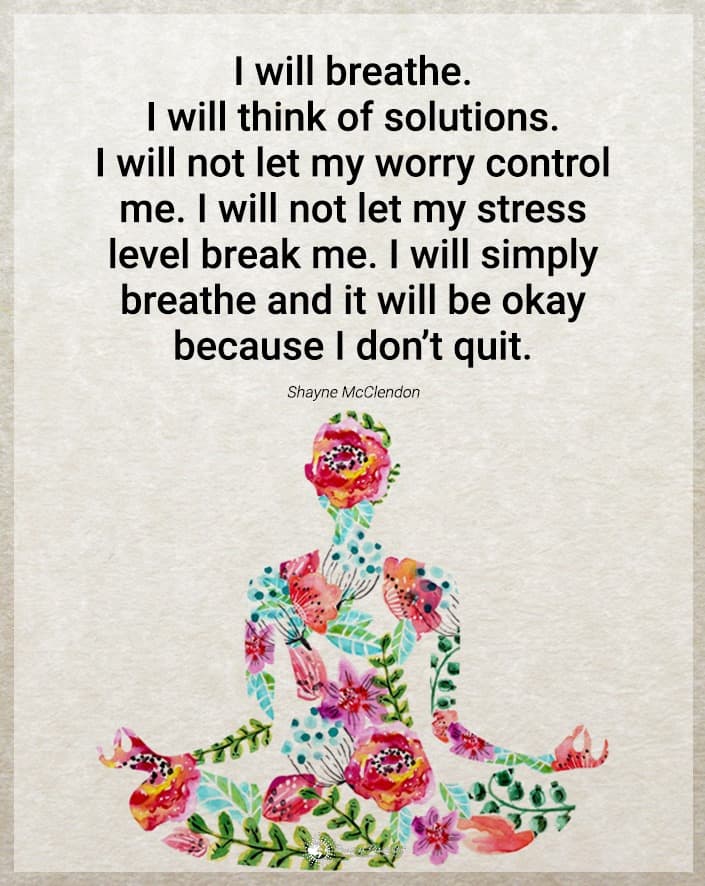Your mental well-being is one of the most overlooked issues, but it’s also vital if you want a content life. There is so much stigma surrounding this issue that people choose to be quiet about it instead of asking for help because they feel ashamed. People have only been speaking openly about mental health for the past few decades.
Before that, you were labeled unfairly if you were depressed, anxious, or had worse issues. Maybe young people feel like they can talk about it amongst themselves, but it’s a taboo subject for people over thirty. No matter how old you are, you have probably been taught to keep your issues to yourself. When teens are depressed, they are just “a bad seed,” “edgy,” or “a rebel.” When adults struggle, they “don’t have their life together” or are “irresponsible.”
There is so much stigma surrounding the idea of asking for help. If you want to take that step, consult a professional, or even talk to a friend, people think of you as “needy.” People are taught that they should always be independent. They are told that they should be ashamed to seek help. But that rhetoric is why people hurt themselves and sometimes even end their lives.
When the pandemic hit, it started an epidemic of mental health issues. Loneliness, anxiety, depression, they all skyrocketed. People need to look after their mental well-being now more than ever.
Why It’s Important To Look After Your Mental Health Without Feeling Ashamed

Whenever you get sick, break a bone, or get a cavity, your first instinct is to go to the doctor or treat your issue. Most people understand the importance of physical health. They know that their quality of life depends on their health. But people seem to forget that they must also look after their mental health.
It’s easy to disregard mental health issues because you can’t immediately see any physical injuries or scars caused by it. As long as the issue is in your head, you can control it, right? And if you are physically healthy, that means you’re fine, right?
These are the rhetorical questions you keep asking yourself to make it easier for you to forget about your mental health issues. You want to seem strong and put together, so you just act like everything is fine. You bury your feelings deep, and you go on about your day. But you probably don’t know that mental health issues leave scars.
The clearest impact of leaving your mental health degrade is that you begin feeling the emotional effects. You start feeling sad, overwhelmed, scared, and tired. At first, it might seem that you are just having a bad day. But then another bad day comes, and another, until the bad days become your normality. And then the physical effects appear. All that stress starts to take a toll on your heart.
The Physical Toll of Reduced Mental Health
Your diet begins to slip, affecting your weight and fitness level. You start looking after yourself less and less, and in time it shows. Poor mental health will even affect your relationships. You will feel like you want to close off and isolate yourself from the world. Putting on a happy face gets increasingly harder. After a while, it just gets easier to hide instead of trying to pretend you are fine.
Maybe you have been taught that mental health issues are a sign of weakness. But no one can control how their brain works in that regard. Mental health issues can be caused by a genetic factor, an environmental factor, or even as a result of other diseases. For example, because of the conditions of pandemic, there has been a sharp increase in cases of depression and anxiety. Even the strongest people can be affected by mental health issues. You wouldn’t tell someone who broke a bone that they’re weak or should be ashamed.
It’s not something they can control. And they can’t just telepathically heal their broken bone. And mental health works the same. So, here are some tips to stop being ashamed of your mental health issues so you can finally ask for help.
3 Ways to Stop Feeling Ashamed About Seeking Mental Health Help
Please don’t feel ashamed about getting help to restore your mental health. Please keep these tips in mind.
1. Stop Dismissing The Issue
Because society keeps dismissing mental health issues, it’s easy to do that too. Ever since you were young, you have probably heard that mental health issues are imaginary or just made up. You have probably been told that you just need to wish the problems to go away, and they will. Everything you have been told about mental health issues makes you believe they are unimportant.
Of course, you would feel foolish to seek help for an imaginary issue. Because of that, it’s easier to dismiss those issues and just pretend they don’t exist. But the first step you need to take to stop feeling ashamed is to reframe your views. Stop pretending that those problems don’t exist.
The simplest philosophy you can live by is that as long as you feel it, it’s real. Pain doesn’t have to come from a physical injury. Sadness doesn’t need to come from a traumatic event. Even if you feel those feelings because you are struggling, those feelings are still valid. If you keep reminding yourself that those feelings are valid, it will be much easier to accept when you need help.
2. Find Your Motivation
People will do almost anything to ensure they can perform fully. Whether you have a job, a hobby, or relationships you need to nurture, you can find a reason to persevere. Unfortunately, some people get so overwhelmed by their struggles that they lose motivation. But if you remember to hold on to that motivation, you can find the strength to ask for help.
Taking care of your mental health is important because it allows you to be fully functional. It allows you to experience happiness, work efficiently, and maintain relationships. It’s important because it keeps you healthy and your head clear. You must understand that you can’t live your life to its fullest potential without caring for your mental health.
Once you do, you can use your goals in life as a motivator for seeking help. If you seek that help because you want to better yourself, you will never be ashamed. You would never be ashamed of working harder to improve your job. So, you should never be ashamed to better yourself psychologically.
When it comes to mental health, the trick is to adjust your mindset. Shame comes from your fears, mainly from being perceived as weak. But if you give your mental health the importance it needs, you can shift your mindset. Even if your motivation is purely external, that’s enough. Even if you work on yourself just to be a more functional member of society, that still helps you. Ideally, you would ask for help for yourself. But if the only way to be a better person for others, that’s still a win.
3. Forget About What Others Think
Shame is the uncomfortable feeling caused by the sentiment that you have done something improper. But the catch is that shame usually happens because you are worried about how your actions look on the outside. While you can be ashamed of yourself, shame is usually associated with how others view you. So, when you take outside perception out of the question, the feeling of shame will go away.
You need to forget about what everyone around you says or thinks. You can’t change what others think anyway. So why even bother? You only have full control over how you decide to live your life. If you want to pursue your happiness, you need to prioritize mental health. And that means being consistent.
Mental health is not just something you can take care of every couple of months. It’s an uphill battle that goes on every day. You need to make sure you at least talk to someone close to you when you feel overwhelmed. If you want to take care of yourself, incorporate mental health care into your routine. Take time daily to meditate, reflect, talk to someone, or relax. Doing small things is much easier if you are struggling with feelings of shame, but they can go a long way.
On your road to recovery, every small detail matters. And in time, you can even build up the courage to take bigger steps, like going to therapy. And remember always to put yourself first. Tune out all negative feedback, and just focus on what you want and need.
Final Thoughts On Ways to Stop Feeling Ashamed About Your Mental Health and Asking for help
The topic of mental health is not something you should ever regard lightly. Not when it comes to your mental health and not when it comes to others’ mental health. But many stigmas are associated with the mere concept of asking for help. People who are struggling are labeled as “crazy,” “weak,” and “lazy.” Instead of learning to ask for help, people learn to hide their issues and act like nothing’s wrong.
Most people are ashamed to admit they are struggling. They choose to dismiss their issues and pretend everything is fine. But, once the burden becomes too much, they risk breaking. But mental health should always be a priority. You should never be ashamed of asking for help. And if you aren’t comfortable doing that from the get-go, try reframing your mindset. Stop putting off the need to talk to someone. Stop saying it doesn’t matter, or you can deal with it later.
Find a reason why mental health is important to you. Maybe you don’t want to get better for yourself, then at least do it for others. Any motivation is better than none. And lastly, forget about what everyone else thinks. At the end of the day, mental health is only about you, and if someone judges you for getting help, that’s their issue.
The post 3 Ways to Stop Feeling Ashamed About Your Mental Health appeared first on Power of Positivity: Positive Thinking & Attitude.









